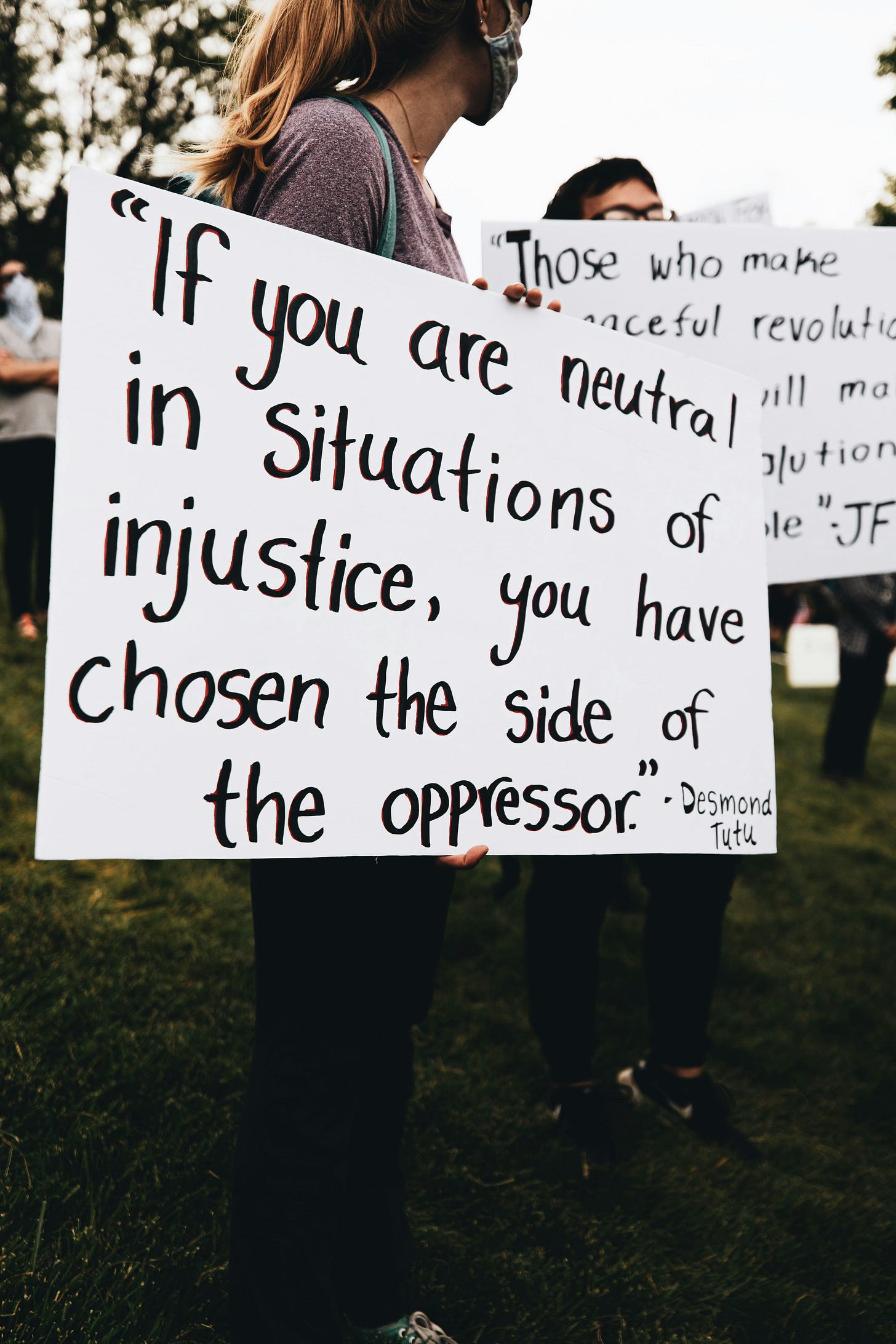Many years ago, I dreamed that the prophet Jeremiah came to my door to ask me out on a date. He was wearing a white t-shirt and jeans, his hair slightly unkempt but still, not exactly the image of Jeremiah I would have pictured.
“Will you go out with me?” he asked.
“No.” I told him, while a party raged behind me in my apartment.
“Come on. You know you want to. Let me take you on a date.”
“Naw. I don’t think so,” I said, almost slamming the door in his face.
“I really think you should go on a date with me. Just try it. I think you’ll regret it if you don’t.”
I’ve never really been a “people pleaser” but the guy wouldn’t leave, so I finally agreed. I’ll save the rest of the dream for another time.
I’ve been thinking about the Jeremiah of the Bible recently because anger has become a real problem for me in the last few weeks, considering our country is on the verge of imploding, and it’s largely the fault of willful blindness in the American church, of which I am a part.
And Jeremiah? Jeremiah was a pretty angry guy; a prophet who was consumed by the anger of God toward injustice—a symptom of the deep love and compassion He had for Israel to walk in holiness and righteousness.
So is it alright to be angry if I’m angry for the right reasons? With all of the conditioning I’ve had in Christian culture of the years, it’s easy to feel trapped in shame when I vent my rage, even if it’s directed toward something I should feel rage over—like concentration camps full of prisoners who’ve not been tried in a court of law.
Let me be honest, I have chewed a few people out—even family members—but I’ve not committed violence or any real sin. I’ve just stated the obvious. You’re supporting and participating in this. JESUS WOULD NOT SUPPORT THIS. Isn’t that what Jeremiah did? John the Baptist?… Jesus, himself?

The truth is, there are moments in scripture that required anger from God. In fact, if the people of Israel weren’t angry about injustice the way God was angry about injustice, well, that was a real problem.
I keep hearing these cliche’ phrases about unity in the Body of Christ and “keeping the peace.” About forgiving and reconciling and walking in humility. Of letting abusive leaders “off the hook.” And yet none of these things solve the issue of injustice. None of them involve repentance, facing the fact that we’ve embraced lies and deception. None of these ideas are preventing people from enabling fascism and abuses of power that harm people and destroy lives.
They’re not making room for the kind of compassion that Jesus embraced.
So, at this time in history, I feel like it is safe to repeat the kinds of things that the prophets would have said when religious people brought dishonor on their communities. Anger is necessary right now.
Please, be angry.
Woe to him who builds his house by unrighteousness, and his upper rooms by injustice, who makes his neighbor serve him for nothing and does not give him his wages. (Jeremiah 22:12-14)
If a righteous person turns from his righteousness and commits injustice, and I lay a stumbling block before him, he shall die. Because you have not warned him, he shall die for his sin, and his righteous deeds that he has done shall not be remembered, but his blood I will require at your hand. (Ezekiel 3:20)
You have plowed iniquity; you have reaped injustice; you have eaten the fruit of lies. Because you have trusted in your own way and in the multitude of your warriors, therefore the tumult of war shall arise among your people. (Hosea 10:13)



